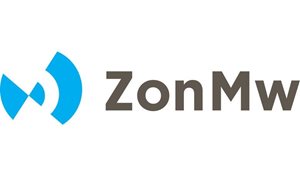 Vaccination is a powerful strategy to induce the activation of tumor‐specific effector immune cells, which is key for successful immunotherapy. However, the generation of effective anticancer nanovaccines is challenging. One of these challenges is the efficient co-encapsulation of antigenic peptides or proteins together with antigen-presenting cell activating adjuvants because of their differential physicochemical properties.
Vaccination is a powerful strategy to induce the activation of tumor‐specific effector immune cells, which is key for successful immunotherapy. However, the generation of effective anticancer nanovaccines is challenging. One of these challenges is the efficient co-encapsulation of antigenic peptides or proteins together with antigen-presenting cell activating adjuvants because of their differential physicochemical properties.
This approach resulted in the generation of nanovaccines with superior antigen/adjuvant loading efficiency. To protect nanovaccines in circulation and to introduce additional functionalities, a biocompatible polyphenol coating is installed. The resulting functionalizable nanovaccines are equipped with a pH (low) insertion peptide (pHLIP) to facilitate endolysosomal escape and to promote cytoplasmic localization, with the aim to enhance cross‐presentation of the antigen by dendritic cells to effectively activate CD8+ T cell. The paper nicely demonstrates that pHLIP‐functionalized nanovaccine can induce endolysosomal escape and enhance CD8+ T cell activation both in vitro and in vivo. The preparation of nanovaccines of the clinically relevant tumor‐associated antigen NY‐ESO‐1 and the excellent capacity to elicit NY‐ESO‐1‐specific CD8+ T cell activation, demonstrate a high potential of this functionalizable nanovaccine formulation strategy for clinical applications.
Publication: Endolysosomal‐Escape Nanovaccines through Adjuvant‐Induced Tumor Antigen Assembly for Enhanced Effector CD8+ T Cell Activation
Related news items

ZonMw Open Competition Grant for Annemiek van Spriel and Piet Gros
15 June 2021 Annemiek van Spriel, theme cancer development and immune defense, together with Piet Gros, Dept. of Chemistry, Utrecht University obtained a ZonMw Open Competition Grant to investigate IL-6 receptor structure and signalling in tumor cells. go to page
HFSP Grant for Johannes Textor
30 March 2020 Johannes Textor, theme Cancer development and immune defense, has been awarded a program grant of 1 million US dollars by The Human Frontier Science Program (HFSP) to investigate how T cells navigate extremely dense environments using experiments, modeling and methods from pedestrian dynamics. go to page
Human pDCs attract cytolytic lymphocytes in anti-cancer vaccination
6 February 2020RIMLS researchers Jasper van Beek and Jolanda de Vries, theme Cancer development and immune defense, discovered that pDCs can efficiently recruit cytolytic immune effector cells, a property that could be exploited in anti-cancer vaccines. They have published these findings in Cell Reports.
go to page
ZonMw funding for teams of Michiel Vermeulen and Jolanda de Vries
4 February 2020The awarded research projects of RIMLS researchers Michiel Vermeulen, Jolanda de Vries, Gerty Schreibelt and Martijn Verdoes and colleagues will initiate new research lines and collaborations between various research groups.
go to page
Niels Stensen Fellowship for Jorieke Weiden
6 January 2020 Jorieke Weiden was recently awarded a grant from the Niels Stensen Fellowship. Since the 1960s, the Niels Stensen Fellowship has been awarded annually to outstanding researchers who recently received their PhD to enable them to gain research experience at a top university or institute abroad. go to page
